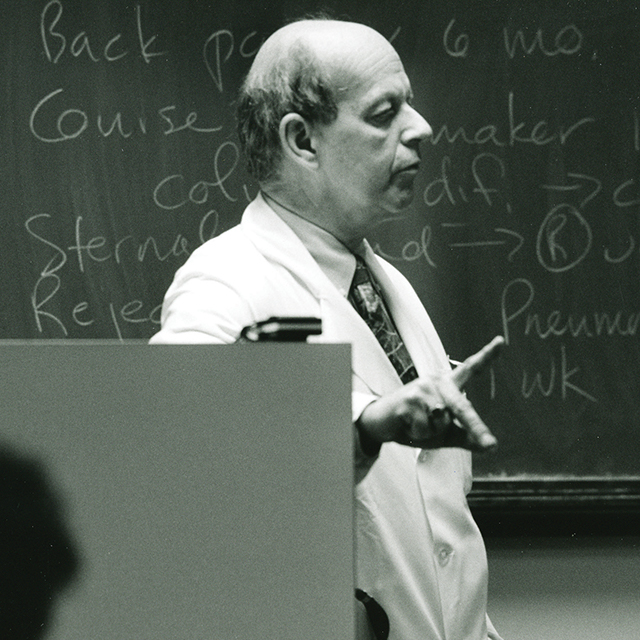Robert H. (“Heppy”) Heptinstall, who studied in the laboratory of penicillin discoverer Sir Alexander Fleming, went on to direct the Johns Hopkins Department of Pathology and serve as pathologist-in-chief of The Johns Hopkins Hospital from 1969 until 1988. In those roles, he earned worldwide renown for his pioneering studies of the links between kidney disease, high blood pressure and hardening of the arteries.
He died on January 5, 2021, in his Baltimore home. He was 100.
Heptinstall is credited with creating the discipline of diagnostic renal pathology, establishing the department’s Renal Biopsy Service, now one of the largest academic nephropathology laboratories in the United States. Operating 24/7, the service handles more than 1,500 kidney biopsies annually, accepting tissue sent to it not only from within Johns Hopkins but around the country. His widely acclaimed textbook — now titled Heptinstall’s Pathology of the Kidney — was the first comprehensive renal pathology volume. Its seventh edition, published in 2014, remains the field’s most widely read text.
Ralph Hruban, current head of the Department of Pathology, said Heptinstall was “one of a kind … brilliant without effort, a gifted writer, a wonderfully colorful character, and a distinguished pathologist and researcher. There will never be another like him,” said Hruban.
In 2011, the Renal Pathology Society renamed its most prestigious honor for him — and he became the first recipient of the Robert H. Heptinstall Lifetime Achievement Award.


